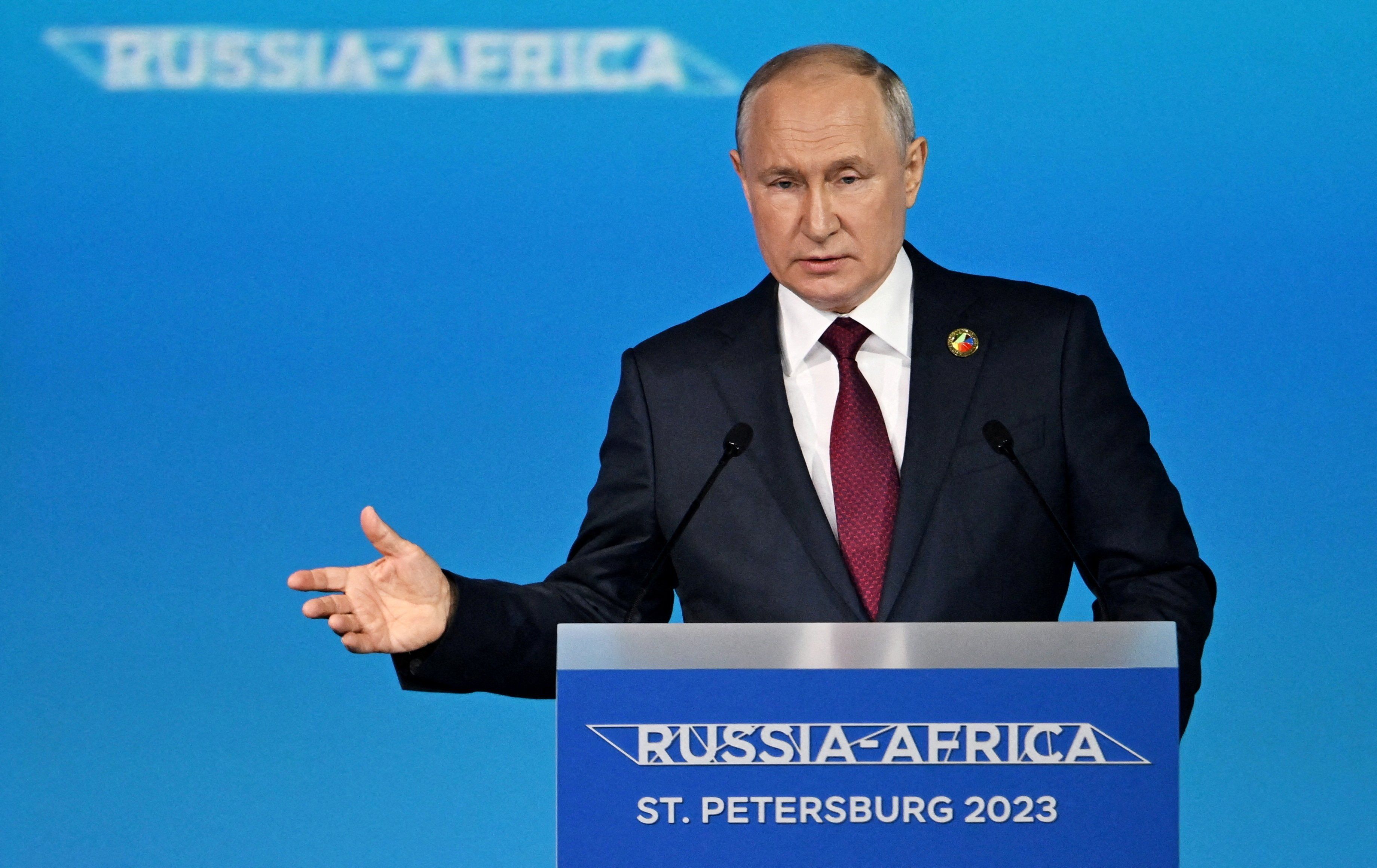Vladimir Putin welcomed a number of African leaders to his hometown of St. Petersburg on Thursday for the second “Russia-Africa” summit.
In the shadow of the Ukraine war, it’s a more modest affair than the first one in 2019. Forty-three African heads of state made the trip then, but this time the Kremlin only expected 17 to show. While most African states have avoided picking sides in the Ukraine war – an inscrutable, faraway ethnic conflict from their perspective – very few have openly supported Moscow.
Russia is trying to style itself as a better friend to Africa than the old colonial powers of the “West,” but the summit opened against the backdrop of the Kremlin’s decision last week to pull out of the Ukraine grain deal – which had allowed some 33 million tons of Ukrainian grain to be exported to markets across the Global South.
The collapse of the deal immediately caused global wheat prices to rise at least 12% on major exchanges, raising concerns about food security, particularly in East Africa. To assuage those fears, Putin promised Thursday to send up to 50,000 tons of free grain to six especially friendly African countries: Burkina Faso, Zimbabwe, Mali, Somalia, Central African Republic, and Eritrea.
Overall, Russia has sought to be a bigger player in Africa recently. Although its trade with the continent is more than 20 times smaller than China’s or the EU’s, the Kremlin is the leading arms exporter to Africa, and it provides security services to a number of local governments in exchange for Russian access to lucrative mineral resources.
